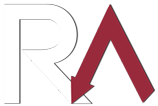annie wrote:i agree in principal with what you say Pat however thought you were a little harsh in point 2.
to stop the dog and draw it's attention to the 2nd bird tends to depend very much on the line out the dog has taken, and in fact at times has depended on the judges perception of where a dogs eyes are located!!
The object is not to draw the attention of the dog to the 2nd bird by stopping him. The reason they stop their dogs, in my opinion, is to stop the dog in his excitement in going for the 2nd bird.
When the dog has been stopped he loses hs excitement to go for the 2nd bird. He is then very easily sent for the first bird.
Two things are a problem here.
First to stop the dog from getting the 2nd bird first.
Secondly, to control the dog to the first bird from the stopped position. This is 2 commands that should be penalised severely because they have not been subjected to the "exercise" of a double fall.
annie wrote:how would you then score a run where the dog has not acknowledged 2nd bird, goes straight to 1st bird and is then given a nice little hand signel to the 2nd bird.....this dog/handler have also not really shown the judge that they can handle the excersize as there was no temptation for the dog to retrieve the wrong bird.
Quite true, this is a difficult one. However, I believe that the dog should be tested on the double fall, which means that if the dog needs a line to the 2nd bird, the judge should stop the run for that dog there and retest the dog after 2 more dogs have been through. Alternatively substantial points should be deducted for the run as the dog has not done the exercise correctly.
One must be fair to the competitors who got it right.
Again, this is just my opinion.
